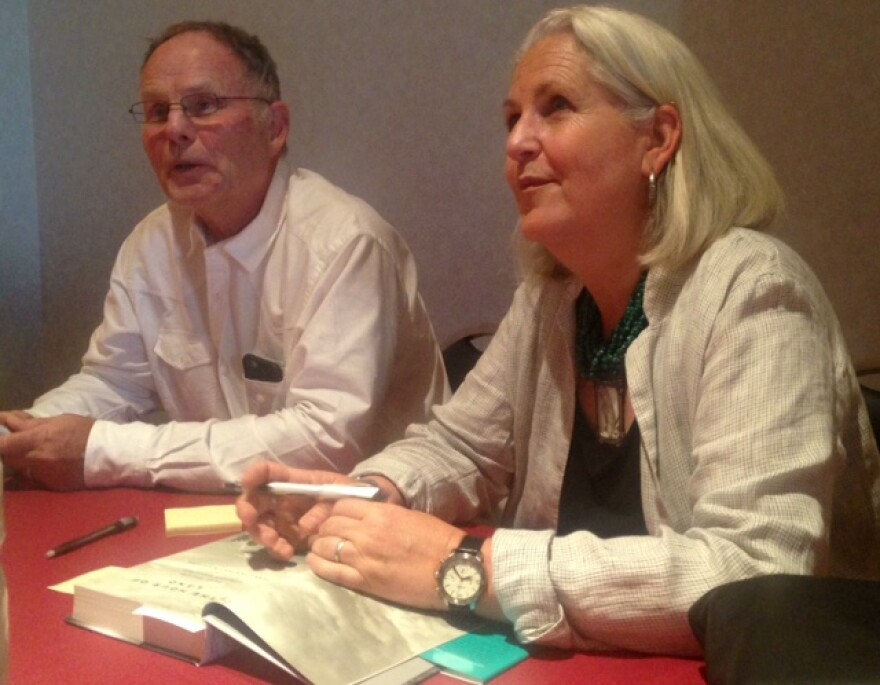If reading Terry Tempest Williams’ prose is like watching an inscrutable tapestry unfold, then to hear her speak is to be threaded onto her magical loom and woven into a story. It is a lived and felt experience.
Instead of watching Donald Trump’s acceptance speech on a recent Thursday night in July, I went to hear Williams share pieces from her new book, “The Hour of Land - A Personal Topography of America’s National Parks” at the UC Ballroom in Missoula, MT.
Near the beginning of her talk, Williams came close to tears - saying quietly, “it’s been a tough year.” Her emotions spoke to personal trials, but also to months filled with collective tragedy and loss, and an attempt in the midst of it all to make something beautiful.
She admitted, “I’ve never felt more humbled. And I think it’s because of this project. I thought that this would be the easiest book imaginable. It’s like - finally I get to write about joy. I get to write about the things that I love the most, which are national parks and public lands. And it would be a subversive way of talking about our public commons.”
She started the project by asking herself - what national parks would I invite to a dinner party? She decided her guest list should include parks that are part of her family heritage, parks that she knew well but wanted to get to know better, parks she had never been to but which haunt her, parks she'd never heard of, and parks that she has only ever dreamed of.
Williams then embarked on her hand-picked tour of eclectic national parks, monuments and battlefields and soon made a harsh discovery.
“What I realized was I wasn’t writing a book about our national parks, I was writing a book about America. And we can’t write a book about America without looking at our shadowed history.”
She finds a country divided, and many Native peoples and species who have been displaced. And at first she felt that she really knew nothing.
But then she stepped into her power as a storyteller, speaking from “the authority of her own heart” and a “love that is wild.” She guided those present through the arc of her journey from Grand Teton, her “mother” park, to Gettysburg National Battlefield where she found the Civil War has never really ended, and to the backyard of her friend and wildlife activist Doug Peacock where they made a poetic offering to the wolverine, which was denied protection under the Endangered Species Act.

Instead of the national parks being our “best idea”, she examines them as an evolving idea of what it means to honor and protect people, and place.
Terry ended the evening by playing Vivaldi’s The Four Seasons over the loudspeaker. But it wasn’t the instantly recognizable version. Instead, this was the piece recomposed by Max Richter, which she recounted listening to in the company of a herd of bison in Yellowstone while she re-imagined our relationship with public lands.
As the music gained and swelled in power, she stood there at the podium with her head tilted and her eyes closed. The entire room was with her. The music stopped, as if teetering on a cliff.
Terry Tempest Williams then whispered:
“This is the hour of land. May each of us with the gifts that are ours, give them up to our community, on behalf of the land, and act.”
It felt like a benediction. It was a gentle but urgent command.

